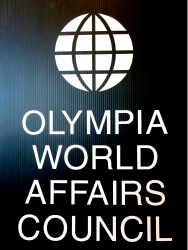
Program on March 21st: Dr. Kristie Ebi, Professor of Global Health at the University of Washington and a lead author on the recent UN climate report will discuss the report’s findings in “Looking into a Very Different Future: Global Warming of 1.5° Centigrade.”
In October 2018, the Intergovernmental Panel on Climate Change released a “Special Report on Global Warming of 1.5°C,” an IPCC special report on the impacts of global warming of 1.5°C above pre-industrial levels and related global greenhouse gas emission pathways, in the context of strengthening the global response to the threat of climate change, sustainable development, and efforts to eradicate poverty. One key message is that our health, livelihoods, and ecosystems are already seeing the consequences of 1°C of warming through more extreme weather and rising sea levels, among other changes. The report highlights risks that could be avoided by limiting global warming to 1.5°C compared to 2°C, or more, including on human health and well-being, agriculture, water, oceans, and ecosystems.
In October 2018, the Intergovernmental Panel on Climate Change released a “Special Report on Global Warming of 1.5°C,” an IPCC special report on the impacts of global warming of 1.5°C above pre-industrial levels and related global greenhouse gas emission pathways, in the context of strengthening the global response to the threat of climate change, sustainable development, and efforts to eradicate poverty. One key message is that our health, livelihoods, and ecosystems are already seeing the consequences of 1°C of warming through more extreme weather and rising sea levels, among other changes. The report highlights risks that could be avoided by limiting global warming to 1.5°C compared to 2°C, or more, including on human health and well-being, agriculture, water, oceans, and ecosystems.
